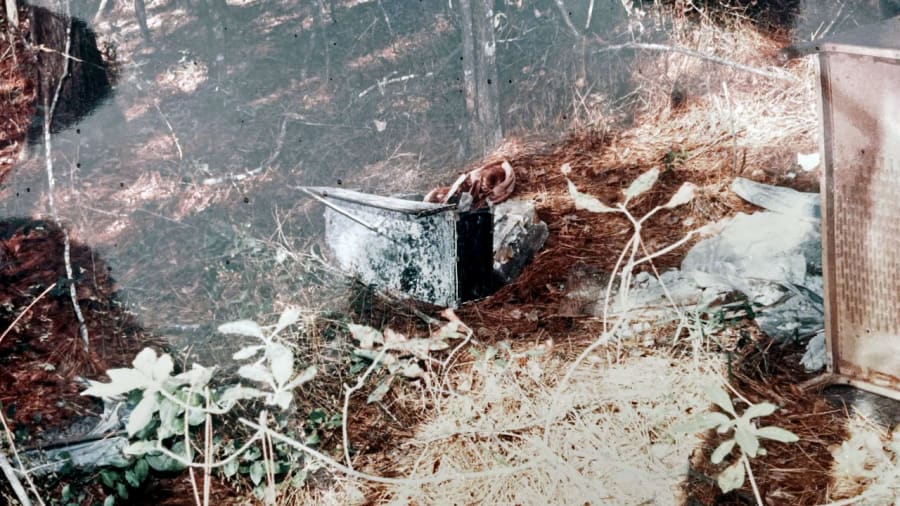WARE COUNTY, Ga. – It’s not a mystery novel. It’s not magic. It’s real life, and it took ceaseless dedication from investigators, advances in technology -- and one crucial phone call.
Agents with the Georgia Bureau of Investigation and Ware County Sheriff’s Office investigators never gave up hope that a “Baby Jane Doe” found in 1988 would one day have her name back.
That day came this week when GBI Special Agent in Charge Jason Seacrist announced the case had been solved after 35 years.
The child found at an illegal wooded dump site in Ware County was 5-year-old Kenyatta Odom. Her mother, Evelyn Odom, also known as Zmecca Luciana, and her mother’s live-in boyfriend at the time, Ulyster Sanders, have been charged in the girl’s death.
“I think when we initially contacted them, there was definitely some surprise that after all these years they were being asked questions about Kenyatta,” Seacrist told The Morning Show on Tuesday.
WATCH: GBI Special Agent in Charge Jason Seacrist discusses solving ‘Baby Jane Doe’ cold case
How investigators got to their door took many years of hard work from multiple agencies.
Seacrist said the case was worked hard from the very beginning, but a breakthrough in DNA genome sequencing gave the case fresh life in 2019.
By 2022, investigators had narrowed down “Baby Jane Doe’s” family to the area of Albany, Georgia.
“This is a great case of the combination of forensic technology and then also good investigative work,” Seacrist said. “It just brought us to the answer.”
But the last key piece of the puzzle, Seacrist said, was a phone call.

After they zeroed in on Albany, investigators decided to do a media update last year on the 34th anniversary of the day “Baby Jane Doe” had been found in Ware County. They also announced a new $5,000 reward offered by a generous anonymous resident.
About a month later, a woman who saw the report called GBI. She said she remembered a child disappearing around the right time and that the girl’s mother said the child had gone to live with her father. Seacrist said the woman never really believed that story.
“Sometimes it’s timing. Sometimes there’s just a moment in time in a person’s life where it just strikes them hard enough that they realize that they need to call somebody,” Seacrist said. “Which is why we never stop working these cases. We never know when that right person is going to come forward to give us the tip that we need.”
The tip got them to right where they needed to be, Seacrist said.
Seacrist said all the investigators and agents who ever touched the case enjoyed a moment of deep satisfaction when they learned “Baby Jane Doe” had a name.
“We have received phone calls and messages from other people that have worked on this case through the years. Everybody is just thrilled that this was able to come to a conclusion,” Seacrist said. “Not only in identifying her, which is difficult enough. But also in getting enough evidence to secure an arrest.”
Kenyatta was found in 1988 by a crew of construction workers in a wooded area of Ware County that was used as an illegal dumping site. She was wrapped in a baby blanket, placed in a gym bag inside a cement-filled suitcase and then hidden in a TV console cabinet.

“To think that a parent actually tossed this child basically into an illegal trash site off the side of the road. It is heartbreaking to consider what that child lived through,” Seacrist said. “People don’t get to that point generally just in one moment. To think of the life that that child had to live through even up to that point and then to just be thrown away.”
Seacrist said the technology landscape has changed so drastically that he is certain more cases like Kenyatta’s will be solved. But many, like Kenyatta’s case, need that last crucial piece.
“Working an investigation and bringing it to a conclusion is not magic. It does take yes, the knowledge and dedication of the agents and investigators that work it. But sometimes we need a tip,” Seacrist said. “We need that right piece of information that pushes us over the finish line, so if you think you have that information, please call the tip line on any case.”






